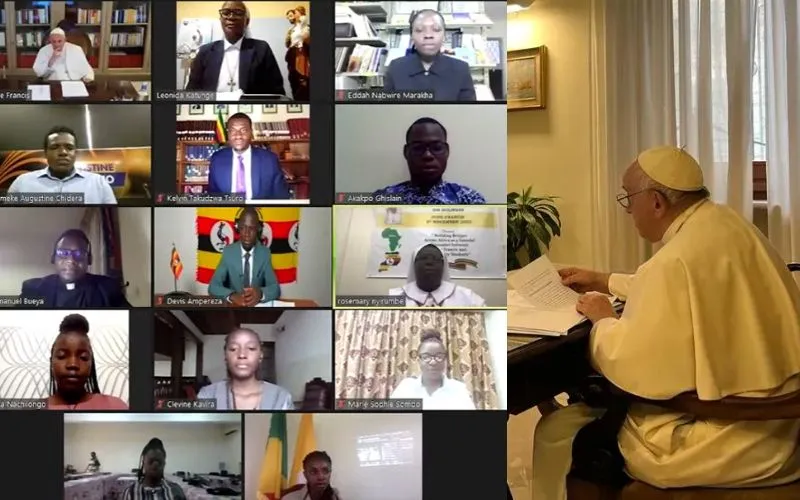Vatican, 23 October, 2024 / 11:13 pm (ACI Africa).
Over 40 African digital faith influencers who graduated in an eight-month formation program last month have been given the go ahead to run their projects in their zeal to transform their communities.
At the launch of the projects on October 18, organizers at the Pan African Catholic Theology and Pastoral Network (PACTPAN) noted that the commissioning was yet another response to the conversation that Pope Francis had with African youths on 1 November 2022.
In the conversation with African youths, Pope Francis in particular urged the young people to believe in themselves and to work hard, saying, “Please continue working, striving for your future. Don’t allow yourselves to be enslaved. Be cautious and make sure you stay alive.”
Fr. Pascal Mwakio, the Chair of the Youth Advisory Council at PACTPAN recalled that following the conversation between the African youths and the Holy Father who had had a similar engagement with young people in the Latin and North America, nine African countries formed groups in the framework of what they referred to as Building Bridges Initiative (BBI).
“BBI was born out of the desire of Pope Francis and the Church in Africa to listen to African young people and to hear what they want to do for God, the Church and society in Africa, and develop pathways for Church leadership in Africa,” Fr. Mwakio said, adding that it is within the BBI groups that activities and responses to the message of the Holy Father to African youths were conceived.








